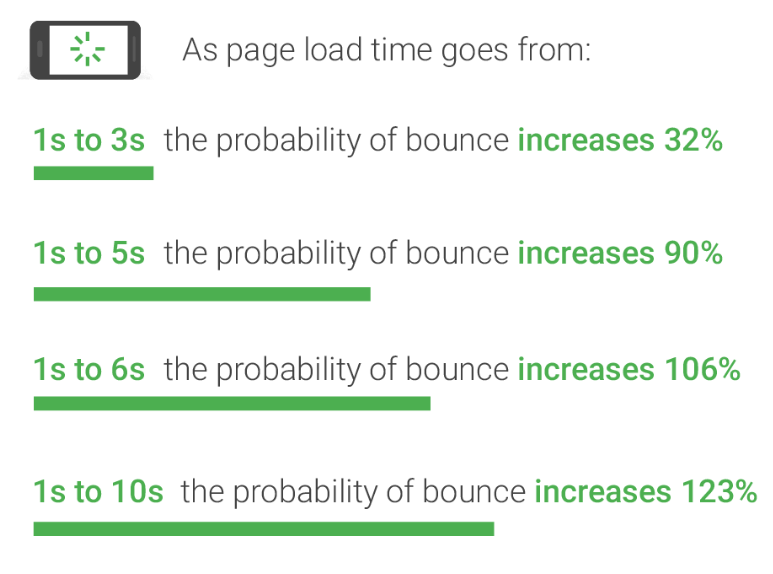5 Ways to Score SEO Quick Wins That Will Get Google’s Attention
Close to 2 billion websites exist and many of them are competing against each other in efforts to reach the sweet spot on Google SERPs, so what does this mean for you? This translates into more competitors targeting your keywords and gunning for those cherished top spots. With this in mind, think of what you can do to compete against these other website owners. Invest more in paid traffic? Turn to other traffic platforms? Or super-charge your SEO efforts for long-lasting results by utilizing SEO quick wins to keep clients invested and SEO efforts improving?
It makes sense that when you spend more on paid traffic you get more traffic, which can lead to more sales potential. The only problem is, that relying on paid traffic solely, can put a business at risk because they are no foundations being built to create sustainable results, leading to longer and stronger raking results.
Did you know that 43 percent of internet users admit to skimming content when reading? This is because as users, we only want to see the content we’re the most interested in, which is why it’s important to set up each page appropriately for many reasons, from making it easier to skim and extract information to adding tags, headers, and other factors to improve how search engines see your pages.
What Role Does SEO Play in Your Business?
Whether you’re a startup, growing business, or a well-established company, SEO marketing will find its way into your marketing plans for several reasons.
- Can improve ranking in search engines
- Can increase organic traffic
- Can boost overall conversions
Of course, there are many other ways SEO marketing can improve your business, but very little have as big of meaning than what can boost the bottom line. This matters because as SEO experts, we know it takes time for the big picture to happen, which is why we have to show fast results in order to keep the clients committed to improving their overall SEO and ranking efforts.
Luckily, there are some small tweaks and items you can take action on, in order to lock down a few SEO quick wins. Let’s see a few of these and how they can be helpful when proving your SEO is working.
5 SEO Quick Wins That Get Results
Proper planning, effective content marketing, and efficient SEO strategies produce 3x more leads than paid avenues. This is because SEO is centered on long-term gains that require little additional investments once properly implemented. What can you do to score a few SEO quick wins to give you more time to prove your strategy is accomplishing the right goals?
Maximizing On-page Optimization
Ensuring your pages are up-to-snuff by placing your keywords in certain areas, will help inform search engines what your page is about and will positively work to direct relevant traffic. Some key areas to include your keywords:
- Body of content
- Headers
- Image ALT text
- Meta descriptions
- Page titles
- Title tags
**Grey Area**
Be sure to avoid over-optimizing your pages by steering clear of keyword stuffing within the contents of the page, as it could result in a penalty, which will negatively impact your rankings.
Building a Strong Internal Link Structure
Unarguably, one of the most effective SEO quick wins you can do to improve your sites structural integrity and link passing ability is establishing a solid build of internal links. The importance of proper internal linking can be clearly understood observing:
“Links act as roadways for search engines like Google. It helps them navigate your site and understand which pages have more importance than others by how many links are flowing through it. Alternatively, the indicated “anchor text” works like a signal that tells Google what type of content that link will lead to.”
The value of having a strong internal build not only helps search engines like Google, but also provides ways to enhance user navigation. For instance, if you notice in your Google Search Console that a good chunk of your traffic is coming organically, using a certain term that you’re not effectively using, then updating your page content to address those key terms as well as linking to other content within your site that further explores those targeted terms. This tells Google that the number of links pointing to the updated page has important information on it while providing users content that is tailored to their inquiries based on your Google Analytics data.
Get Indexed: Giving Google Your XML Sitemap
If you haven’t done this SEO quick win, then you’re falling behind. Providing Google with a copy of an updated XML Sitemap of your website is essential. After all, your pages will not even show up in search results if they are not indexed by the search engine.
Your sitemap acts as a blueprint for search crawlers. It shows the architecture of your site and indicates the type of content that will exist within your site. If you are not familiar with how this is done, you can use Google’s Search Console to create a sitemap directly from the platform. If you’re using CMS-based site like WordPress, then you can find a number of plugins that will generate one of these for submission through your Search Console account.
Believing In Search-Optimized URLs
Just internal linking is important to the structure of your site and helps crawlers scan your site more effectively, the format of your URLs can also make a big difference. For most, the target is to include your targeted keyword within your URL. This tells Google what the page is about and they provide users with information, including URL structure before they click through.
Want to see an example?
Let’s look at your potential company blog page, and a recent article you may have published. Most CMS platforms provide you with options on how you want to format your URLs, but in most cases, it is generically set to replicate the article title as the URL slug and will add categorical separation if indicated. Review the following to see it in action:
Companysite.com/blog/category/your-article-title-here
In practice, as long as you use your target keyword in the title of your post you will have some exposure there, but this also comes with negative words that could be contained in your title. Noise words like a, the, for, etc. can mislead results.
**Fun Fact**
According to Express Writers, having a blog for your company site will increase your chances of ranking on search engines by over 400%!!!
Now if you’re looking to get real results and score one of those sweet SEO quick wins, then you’ll want to pay attention to how you structure your URLs. Let’s see how to score that fast win and start reaping some quick SEO benefits:
Companysite.com/blog/category/targeted-keyword/
This simple change will boost organic results and let users and search engines like Google know exactly what to expect behind that link. Also, since there is a high chance your URL will contain the user’s search term, you are more likely to wield a click from that user.
Proper Page Load Speed Creates More Trust
In the land of digital engagement, there is a saying, “Faster is better. Less is more.” This is a golden rule when developing digital interactions between users, search engines, etc. The faster a page loads, the lower the bounce rate will be according to Think with Google.
While we all want to create beautiful pages filled with user engagement opportunities and education. Unfortunately, sometimes these awesome features and page add-ons can severely hinder your site’s speed.

Using page optimization tools can help reduce load times by minimizing and organizing file data and size, without compromising any design or details. Minimize your load time and increase your potential conversions. Slower pages receive less traffic, garnering lower conversion rates.
Using Google Analytics to Prove SEO Quick Wins
Now that we know what SEO quick wins to apply, how can we use Google Analytics to provide value to the clients of our newly found wins? First, make sure Google has an updated and correct sitemap and that your account is being indexed. This can be done by selecting “Fetch as Google” in the Crawl area of the menu.
Google Analytics (GA) is a vast sea of user insights and can provide you incredible direction and detail into your users and traffic. Your analytics hold the keys to understanding your traffic and customers. Find what pages are performing the best. Which have the lowest bounce rates and highest on-page session times with the most traffic? This will let you know what type of content is performing the best, which will allow you to see what’s working.
You can use this information to boost secondary pages and other low ranking pages within your site by updating the content and linking structure to provide more navigation juice for users and engines to hit and click on your other content.
Looking at your top pages and what queries are driving traffic can help you understand where you should concentrate your focus and the type of content you should produce to maximize these effects. Whether you have questions, comments or looking for a consultation from a group of experts, GH.A is here with custom-tailored SEO solutions to enhance brand awareness and digital exposure. We would love to lend a hand if needed. We look forward to hearing from you.


